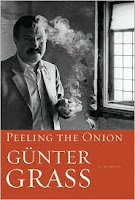
Subtitled "The Provencal Sisters Who Ruled Europe".
I learned a lot from this book, but I was disappointed in the writing style, which is that of a long-winded, repetitive, high-school research paper. The subject matter is incredibly interesting, however, and propelled me forward to finish the book.
The book narrates the lives of the four daughters of Raymond Berenger of Provence (southern France) in the mid-13th century. The daughters were, from eldest to youngest: Marguerite, who wed Louis IX (Saint Louis) and endured two seperate crusades to the Holy Land; Eleanor, who would wed Henry III of England; Sanchia, who wed Richard of Cornwall, Henry III's brother and eventual Holy Roman Emperor; and, finally, Beatrice, the youngest, who would inherit her father's lands and title in Provence. Beatrice wed Charles d'Anjou, Louis IX's younger brother.
All four sisters did, in fact, become queens - of France, England, the Holy Roman Empire, and of Sicily. Which means they were married to kings, whose lives were, of course, much more interesting. The depiction of the queens' lives unwittingly highlights the limited roles of women, even powerful women, during the Middle Ages. There is much conniving, back-stabbing, second-guessing, and whispered manipulations from these women, mainly because it was not acceptable for them to do anything outright. In Beatrice's case, even her own sisters and mother begrudged her inheritance of her father's estate, believing it could not be rightly hers, being both the youngest and female. Beatrice stood up for herself and was subtly ostracized for it.
At least, none of them were dragged through the streets by a wild stallion, the fate of that other "powerful" queen from Southern France, Brunhild. And it would be another three centuries before Elizabeth I of England would prove herself more than capable of ruling the most powerful empire in the Western World. But, of course, she kept all her male suitors at bay.
Overall, a so-so read, and not even as full of information as I'd like. I feel a lot was glossed over and maybe even "dumbed down" for a mainstream (possibly mostly female?) audience. I would have liked more details about everyday life, such as dress and cuisine. Reading this, however, has piqued my interest in Louis IX and Beatrice of Provence, as well as the Holy Roman Empire. And of course to fill in the gaps between the Merovingians and 13th c. France.
I recommend this to anyone interested in European History and the roles of women in 13th c. European royalty.


